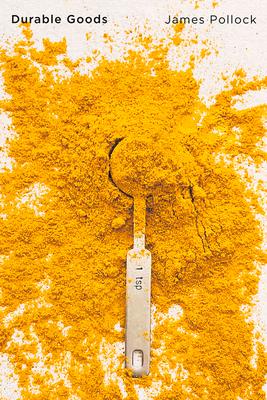Durable Goods is a book of a sharply imagined poems about everyday technology. Writing in the Dinggedicht or thing-poem tradition of poets like Rilke, Ponge, and Marianne Moore, James Pollock calls to surprising life everything from microwaves to kettles, sprinklers to umbrellas, with a precision both unerring and effortless. By conjuring the essential spirit of each object, the poet reveals the tools and appliances that surround us as both sympathetic reflections of ourselves--our fear, love, rage, hope, and grief--and strange beings with inner lives of their own. "It knows how much pressure you've been under," Pollock writes, of the barometer, "that you could use a change of atmosphere." Read together, these poems immerse us in an imagined world with the power to make us see our own in a new way. Suffused with dazzling wordplay, razor wit, and rippling sonic effects, the poems richly reward being read aloud. Indeed, for Pollock, the most durable good is language itself.

Durable Goods is a book of a sharply imagined poems about everyday technology. Writing in the Dinggedicht or thing-poem tradition of poets like Rilke, Ponge, and Marianne Moore, James Pollock calls to surprising life everything from microwaves to kettles, sprinklers to umbrellas, with a precision both unerring and effortless. By conjuring the essential spirit of each object, the poet reveals the tools and appliances that surround us as both sympathetic reflections of ourselves--our fear, love, rage, hope, and grief--and strange beings with inner lives of their own. "It knows how much pressure you've been under," Pollock writes, of the barometer, "that you could use a change of atmosphere." Read together, these poems immerse us in an imagined world with the power to make us see our own in a new way. Suffused with dazzling wordplay, razor wit, and rippling sonic effects, the poems richly reward being read aloud. Indeed, for Pollock, the most durable good is language itself.